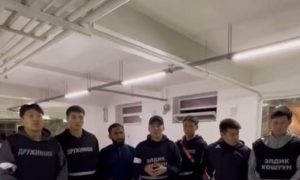BELEM: Brazilian President Luiz Inacio Lula da Silva inaugurated a pivotal summit on Tuesday, heralding it as a “landmark” gathering where South American leaders aim to establish a comprehensive roadmap to preserve the imperiled Amazon rainforest. The two-day meeting of the Amazon Cooperation Treaty Organization (ACTO) is being held in the city of Belem in northern Brazil.
President Lula expressed his commitment to securing ambitious commitments to halt the degradation of the world’s largest rainforest, emphasizing the importance of the summit in shaping the future of Amazon preservation.
“This is a landmark meeting. It will mark a turning point in the history of protecting the Amazon and the green transition,” President Lula declared at the outset of the gathering, situated at the mouth of the Amazon river.
This summit marks the first time the eight-nation group, formed in 1995 by South American countries sharing the Amazon basin — Bolivia, Brazil, Colombia, Ecuador, Guyana, Peru, Suriname, and Venezuela — has convened in 14 years.
The Amazon rainforest, housing 10 percent of Earth’s biodiversity, nurturing 50 million people, and serving as a critical carbon sink, plays an essential role in mitigating global warming. However, escalating deforestation poses a significant threat, pushing the rainforest toward an ecological “tipping point” where its ability to absorb carbon diminishes, potentially triggering severe climate consequences.
The participating countries are resolute in preventing the Amazon from reaching an irreversible state, as highlighted by Brazilian Environment Minister Marina Silva, who underscored the collective determination to safeguard the rainforest’s ecological balance.
President Lula seeks to strengthen the ACTO through this summit and produce a comprehensive joint declaration with an ambitious action plan aimed at curbing deforestation.
In addition to its immediate impact, the summit also serves as a preparatory exercise for the 2025 United Nations climate talks, scheduled to take place in Belem.
Deforestation in Amazon
Deforestation in the Amazon is primarily driven by activities such as cattle ranching, exacerbated by corruption, land encroachment, and criminal enterprises encompassing drug trafficking, arms trade, timber, and gold smuggling.
Brazil, as a predominant player with 60 percent of the Amazon within its borders, has already lost nearly a fifth of its rainforest to deforestation.
Environmental organizations are pressing for the adoption of Brazil’s commitment to eliminate illegal deforestation by 2030 across all eight participating nations. However, the negotiation process is anticipated to be complex and may require additional time.
Notably, Colombian President Gustavo Petro advocates for a complete ban on new oil exploration, a contentious subject affecting oil-rich Venezuela and Brazil, with its state-run oil company, Petrobras, eyeing offshore exploration near the mouth of the Amazon.
The summit also contemplates proposals for an international police task force for the region and a scientific research body analogous to the Intergovernmental Panel on Climate Change (IPCC) to support UN climate talks.
Key regional leaders, including President Lula, Colombian President Gustavo Petro, Bolivian President Luis Arce, and Peru’s Dina Boluarte, participated in the summit.
Although Venezuelan President Nicolas Maduro was absent due to illness, Vice President Delcy Rodriguez represented Venezuela. Ecuador, Guyana, and Suriname sent high-level officials to the summit.
President Lula’s commitment to climate action is undergoing scrutiny, as he returns to the presidency, aiming to combat environmental degradation following a period of significant Amazon destruction during his predecessor Jair Bolsonaro’s tenure.























